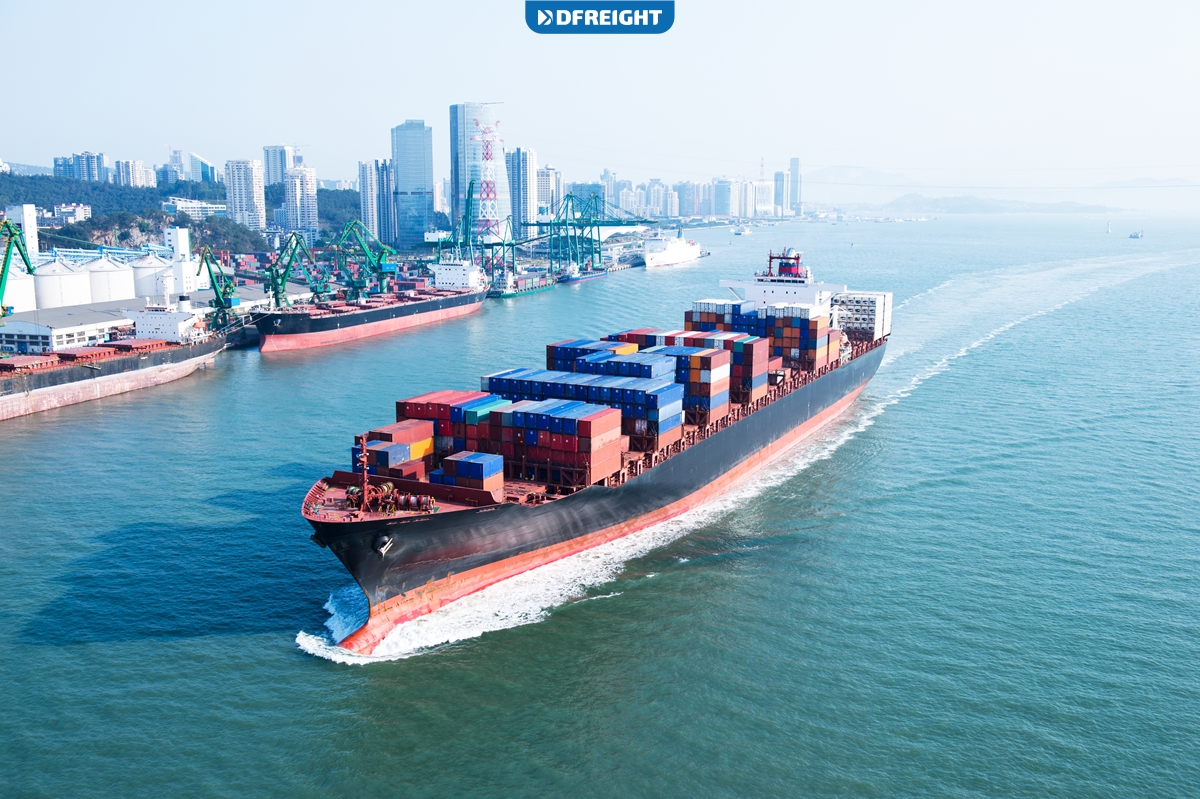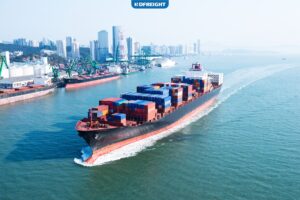Ocean transportation intermediaries (OTI) are companies that provide international ocean shipping services. These services can include arranging cargo transportation, issuing bills of lading, and giving other logistics services. There are several types of OTIs, each with their strengths and weaknesses. This blog post will look at the different kinds of OTIs and how to choose the right one for your business.
Table of Contents
What is an Ocean Transportation Intermediary?
An ocean transportation intermediary is a company that provides services to help move goods from one location to another via ocean freight shipping. This can include booking cargo space on a ship, arranging for shipping insurance, and providing other logistics services. Many intermediaries also offer freight forwarding services, which means they can help get goods from point A to point B, including arranging for land transport to and from the port. An OTI may perform the following functions:
- Negotiate and execute service contracts with vessel-operating common carriers on behalf of their shipper customers
- Issue its bills of lading or other documentation to its shipper customers
- Handle, consolidate, and pack cargo
- Arrange for cargo insurance
- Provide tracking and tracing of cargo
- Arrange for the delivery of cargo to inland destinations
- Provide other value-added services
- Arrange for the movement of cargo by any mode of transportation
- Prepare and process documentation and perform other activities related to the direction of cargo
- Provide information about transportation and related matters
- Arrange for warehousing, storage, and inland transportation
The role of ocean transportation intermediaries has become even more critical as the maritime industry has become more globalized. With the growth of international trade, ocean transportation intermediaries have become the link between shippers and carriers in different countries. They have become experts in the complexities of international shipping, including customs regulations and documentation. The traditional view of ocean transportation intermediaries as service providers is no longer accurate. They now play a vital role in the maritime industry, providing a wide range of services essential to the successful movement of goods.
What are the Different Types of Ocean Transportation Intermediaries?
There are several types of OTIs, each with their strengths and weaknesses. Here is a brief overview of the different kinds of OTIs:
- Freight Forwarders: Freight forwarders are companies that provide transportation and logistics services for shipments by ocean carrier. They are regulated by the International Federation of Freight Forwarders Associations (FIATA) and must have a license to operate.
- Liner Agents: Liner agents are companies that represent ocean carriers and provide shipping services on their behalf. They must have a contract with an ocean carrier to provide services.
- NVOCCs: NVOCCs are companies that provide ocean transportation services but do not own their vessels.
- Custom House Brokers: Custom house brokers are companies that facilitate the clearance of goods through customs. They must have a license to operate.
- Port Agents: Port agents are companies that provide services to vessels at ports. They must have a contract with a port to provide services.
There are many different ocean transportation intermediaries, each with a unique role in the shipping process. Every kind of intermediary has its strengths and weaknesses, so choosing the right one for your shipping needs is crucial.
How Do I Choose the Right Intermediary for My Business?
Here are some things to consider when choosing an OTI for your business:
- Consider Your Shipping Needs: The first step is to consider your shipping needs. You should think about the type of goods you are shipping, the frequency of shipments, and the destination of your shipments. This will help you narrow down your options and choose an OTI that is a good fit for your business.
- Do Your Research: Once you know what you are looking for, you should do your research. You can start by looking at the websites of different OTIs and reading customer reviews. You should also contact the OTIs and ask questions about their services.
- Ask for Recommendations: Another great way to find an OTI is to ask for recommendations from other businesses in your industry. They may be able to give you insights into the services of different OTIs and help you find the right one for your business.
- You can compare their services and fees when you have a few options. It’s essential to get quotes from multiple intermediaries so that you can compare apples to apples. Make sure also to read reviews and check references.
- Once you’ve found the right intermediary for your business, sign a contract outlining the terms of your agreement. This will protect both you and the intermediary.
Conclusion
There are several types of OTIs, each with their strengths and weaknesses. When choosing an OTI for your business, you should consider your shipping needs and do your research. It would help if you also asked for recommendations from other companies in your industry.
DFreight offers a hassle-free online platform that makes shipping easy and convenient. Get started today and see how we can help you save time and money.
FAQs
What are the services offered by ocean transportation intermediaries?
Services offered by ocean transportation intermediaries can include arranging for the transport of goods, handling the documentation associated with shipping, and providing other value-added services such as storage and insurance.
What are the benefits of using an ocean transportation intermediary?
The benefits of using an ocean transportation intermediary include having a single point of contact for all your shipping needs, access to a network of carriers, and the ability to take advantage of economies of scale.
How do ocean transportation intermediaries work?
Ocean transportation intermediaries typically work with a network of ocean carriers, and they use their relationships to negotiate the best ocean freight rates and services for their clients.
What are the costs associated with using an ocean transportation intermediary?
The costs associated with using an ocean transportation intermediary typically include a service fee and the charges of any value-added services used.
What are the trends in ocean transportation intermediaries?
The trends in ocean transportation intermediaries include the use of new technologies to improve efficiency and the consolidation of providers.














